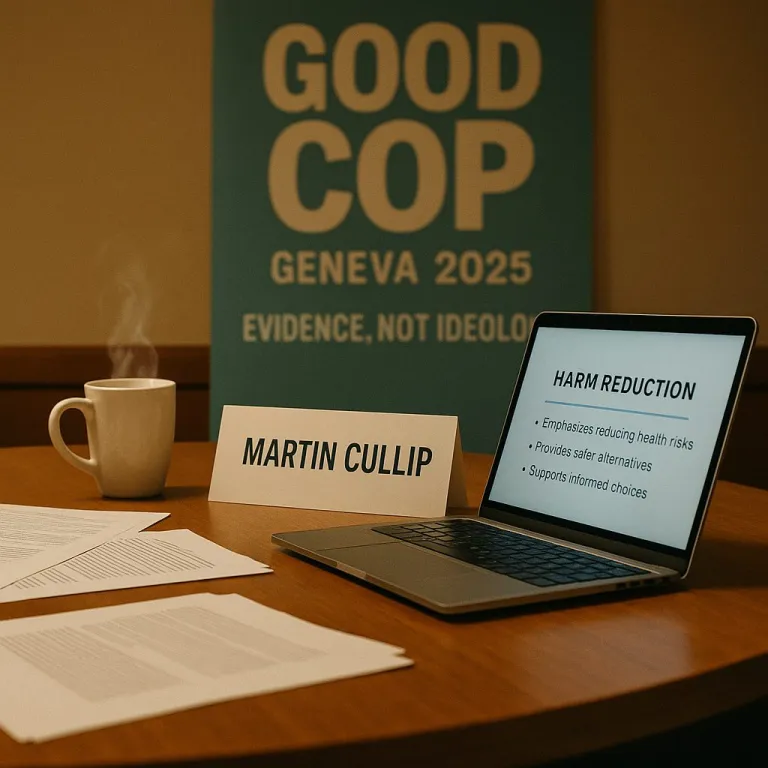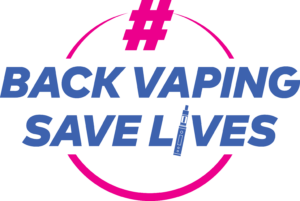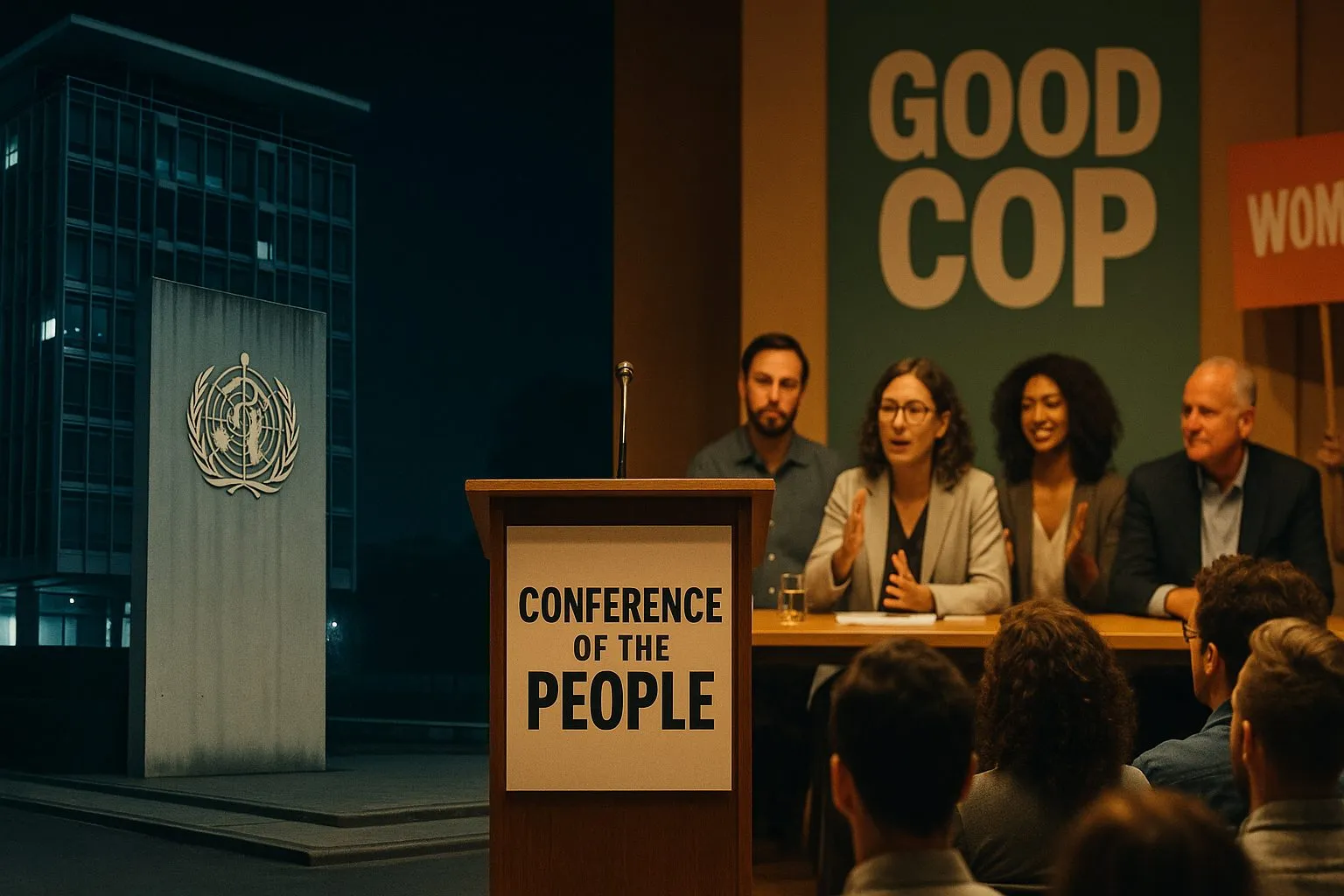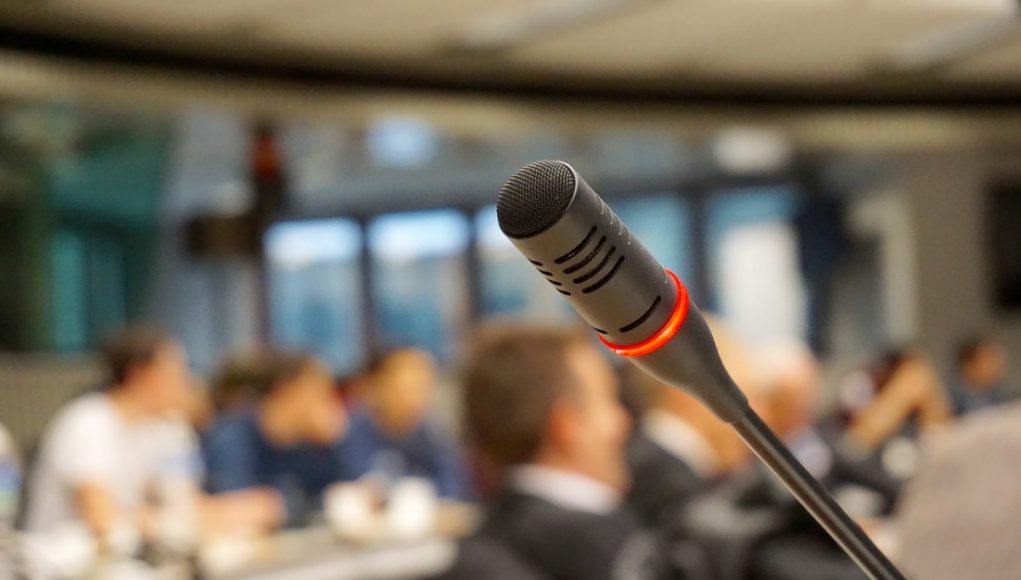By: 8 August 2025
Martin Cullip is an International Fellow at the Taxpayers Protection Alliance’s Consumer Centre, and a fearless advocate for tobacco harm reduction, smokeless nicotine alternatives, and, most of all, common sense. As an accomplished public speaker and writer, he’s been trashing the nanny state for almost two decades, bringing passion, wry humour, and serious knowledge to bear in the fight against nonsense.
With the Eleventh Session of the Conference of the Parties (COP11) to the WHO Framework Convention on Tobacco Control (FCTC) around the corner, we caught up with Martin to discuss his presence at the public, inclusive counter-event Good COP that will also be held in Geneva at the same time.
We talked about Good COP and Bad COP, the WHO’s increasing irrelevance, UK harm reduction, FDA reform, and a whole lot more.
So, COP 10 was in Panama, COP 11 is in Geneva, what money-laundering destination should we look forward to for COP 12?
At the COP, there is an item at the end of every agenda where they announce which country will host the next COP. This year, they received no applications. They came out and said, “Is there anyone who wants to host this?” And still no one wanted to do it. So, they had to revert to their base in Geneva.
It makes you wonder a couple of things. Firstly, will they get any applications for COP 12? Because that cost Panama a lot of money, and there were a lot of protests about it and articles asking “why are we spending money on this tobacco conference when we don’t have enough incubators for babies in our hospitals?”
Politically, hosting COP is going to play very badly for anyone who wants to apply, because they’re going to have to put up with those sorts of questions. It’s not like the Olympics, where you end up with infrastructure and more people interested in sport. Instead, it’s something that happens on the quiet, no one really knows about—which they’re quite happy with. Most countries will be asking themselves the question, “what’s the point in hosting it?”
The other thing it makes me think is, is the FCTC really that much of a concern for countries anymore? You get the impression that countries are thinking, “well, we’ve implemented all these tobacco policies that they demand, what else can we do?”
At the last one, there were about thirty or forty countries that objected to the WHO doing down harm reduction. Their attitude towards harm reduction isn’t doing them any favours. There may be some countries thinking, Is this even relevant anymore? They need to be careful about going down the road where they make themselves irrelevant by standing up against harm reduction, which, as we know, only serves to protect the cigarette trade.

Yeah, by definition, the COP is exclusionary, so there are very few benefits to the country, save for a few hotels and restaurants being booked out. Funnily enough, maybe the only way to keep it relevant is by inviting dissenting voices.
If you look at the COP 11 agenda, something that jumps out straight away is 4.5, which states that they’re going to talk about harm reduction, but not in the context of article 1d, only in the context of article 5.2 and 5.3.
So, they don’t want to discuss harm reduction as a pillar of tobacco control, and instead, they see it as a ruse by the industry. They’ve done this before with other substances, before eventually coming around, and now they’re in favour of harm reduction when it comes to drugs, but they can’t get out of this inertia when it comes to tobacco.
I think at COP 11, we’re going to see them have another go at harm reduction, and they’re going to try to ignore what happened at the last COP, where a bunch of countries say, You’ve got the wrong attitude here. It’s really not something they should be doing, considering the amount of hassle and flak they got over their COVID-19 response.
I know I should be better than this, but it is exciting to see them have less money because of the Trump administration cuts, and it’s cool as well that they’re are these budding coalitions in the EU and elsewhere who are saying, “You know what, this isn’t working.” It’s kind of interesting to see how it will go over the next few years.
Are we getting to a point where you think they are getting a bit weaker, and people might be able to fight back?
Well, yeah, that’s what we hope for. The fact that so many countries, like New Zealand, the Philippines, and Saint Kitts and Nevis, stood up last time, albeit very politely, and made a few noises, saying, “some of our countries want to use harm reduction”, is exciting.
Just by mentioning harm reduction, they’re going against the WHO, because the WHO doesn’t want to talk about harm reduction. So, just by mentioning it in their statement, they’re sending a message to the WHO that we are going to use these products.
I was disappointed that the UK didn’t mention harm reduction. The whole point of the statements is that they’re supposed to stand up and speak about what they’re doing. In the UK, the biggest thing we’re doing is the Swap to Stop campaign, and yet, the delegation went there and didn’t mention it. It’s almost like the UK delegation is scared of the WHO.
They should have gone there and said, We have a campaign where we’re going to give out one million vapes, which is really disappointing from a UK point of view. I hope that more delegations are encouraged to speak up.
I’ve spoken to people who’ve been in these COP meetings, and they have all the observers, the Bloomberg-funded organisations, the EU observatory, corporate accountability people. They go around basically pressurising these delegations into making decisions they want them to make. So, there are a lot of people who would be intimidated by speaking up. The fact that thirty to forty spoke up shows that there is a lot of frustration out there.
Another point about reform, which we talked about earlier, is that Americans have withdrawn funding, and the WHO is faced with a $600m black hole, leaving them uncertain about how to proceed. They recognise they need to reform, but having COP 11 in Geneva really highlights that they’re having all their staff in one of the most expensive cities in the world. They don’t want to emphasise that all their major staff are in these big buildings where it costs like £10 a pint. So, just the conference being there is enough emphasis on their overall lack of reform.
And, of course, Good COP will be there, right?
Yes, they’ve got a Conference of the Parties, and we’ve got the Conference of the People, because we allow anyone to speak. In Panama, we were inviting people to come, even if they were from Bloomberg organisations.
We had some strategists turn up, and we invited them in, offering them a lanyard and the opportunity to join in, but they refused because they just wanted to have a nose around.
Last time, we had 24 experts from 14 countries; this time, we have 38 experts from 23 countries. We’ve got policy experts, doctors, consumers, everyone is invited to this thing. Last year, we even invited Brian King from the FDA, and we got a polite decline of the invitation, but we’re very inclusive.
They refuse to listen to anyone else. They won’t let consumers in. They heavily vet any press. They don’t want observers unless they’re fully signed up to the WHO stance, but we’re very inclusive.
Yeah, the side events to these things, like Off Sonar in Barcelona, are always much, much better. For me, anyway.
Last year’s panel was great. There was a real breath of interesting people. But who are you excited to hear about this year?
This year, we’ve got Derek Yach coming, who was involved in the early years of the FCTC treaty, and you could argue that he had a say in the writing of the treaty. He’s very disappointed in how the treaty has panned out.
As many people have said, there is nothing wrong with the treaty itself. However, the administration of the treaty involves ignoring harm reduction or punishing safer nicotine products. The big problem for them is Article 1d, which mentions that one of the pillars of tobacco control is harm reduction. They can’t get out of that; they’d have to rewrite the whole treaty, which would mean 183 countries would need to re-ratify it. So, they’re stuck with it, and they’re increasingly really frustrated that they’re stuck with it, and they’re trying everything, like this 4.5 in the agenda, which attempts to cast harm reduction as a ploy from the industry, even when all other UN institutions accept harm reduction in every different policy aim. It’s an indefensible position. So, sooner or later, they’re going to have to come round or they’ll make themselves seem more and more irrelevant.
It’s such an interesting inflexion point that they are at now. I really do want to see the gravy train grind to a halt. I would love to see that.
Some countries don’t really need the WHO, and others are very reliant on its guidance. The reliant ones might be less likely to speak up, which is why countries like the UK need to be a sensible voice.
Last time we spoke, Labour had yet to get into power. We were worried at the time, but somehow, it’s been worse than I thought it might be.
Yeah, well, when Andrew Gwynee was in charge—before he had his comeupance—he said in the debate on that bill, we are 100% behind the FCTC treaty, but at the same time, when asked, he said he’d back and fund the Swap to Stop campaign. But you can’t hold those two positions at the same time, because the Swap to Stop scheme is something the WHO is trying to get countries to ban all over the world. They don’t want people to use safer nicotine, so it is a contradiction.
I’m interested to see what this Labour government does as COP 11 delegates, but being very authoritarian, they’ll probably do the same again, and won’t mention harm reduction. Which I think is pretty disappointing from the UK. We’re one of the biggest funders of the WHO, so we should be able to say, “You’re going down the wrong path.”
Absolutely, we should be dictating the agenda. What I’m always told about the environmental stuff is that if the UK embraces net zero—even at the cost of our economy and despite the fact that we contribute a small percentage of global emissions—it’s about the influence we have to direct other countries to do the “right” thing. But that doesn’t seem to be a concern for our leaders.
Yeah, I’ve never thought about that. We want to lead the world on net zero, but we don’t want to lead it on harm reduction. Why is that? Why is the UK ashamed of its Swap to Stop campaign?
I know. We should be so proud of it. It’s a genuinely innovative scheme. I don’t understand this government; none of it makes sense.
So, who else are you looking forward to hearing at Good COP?
We’ve got Dr Tikki Pangestu coming from Indonesia. Again, he was involved in the early years of the treaty and was subsequently very critical of it. We’ve got a lady from Mexico who has been on the Mexican government delegation for a number of COPs, and she’s furious about what Mexico is doing. We might be doing a webinar with her soon.
I’m hoping we’re going to get a lot of European consumers because last time it was hard for people to get to Latin America, but Geneva is much more accessible for people.
Last time, it was quite complex to organise visas for everyone. We’ve got a couple of guys from Africa coming. Overall, it should be more accessible if all goes well.
Does the Taxpayers Alliance have other events coming up over the next while?
We’ve been doing a series of webinars called Countdown to COP 11. They’ve all been themed. We held one at the GFN in Warsaw, and we had four panellists like Tom Gleeson from Ireland, Nancy Lucas from New Zealand, Maria Papaioannoy from Canada, and Chile’s Ignacio Leiva.
Leiva is very passionate, and he’s worked hard in Chile, and they have got what are probably the best vaping laws in the world. The EU TPD wasn’t perfect, but it was something you could work with. However, the directive Chile has implemented is immense and welcoming towards harm reduction, so they should get some good results there.
But he was saying, when I asked him, does that mean that things are changing there, and he said, “No, the other side has just got worse and worse, more mudslinging, smears, and innuendo. They’ve just gotten worse.”
A lot of the problem with the WHO is its funding source. It’s guided by private interest. A lot of its funding comes from Bill Gates and Michael Bloomberg. Michael Bloomberg pays for reports, he’s a goodwill ambassador to the WHO, and he has a lot of influence. But they shouldn’t be influenced by him; they should be influenced by the delegations and what is working in other countries.
That’s one thing they don’t do with the FCTC: work out if it’s actually effective. They’ll measure buy-in and the implementation of their MPOWER policies, but they won’t measure if the policies actually have an impact.
They produce the Tobacco Atlas which records what WHO policies countries have implemented, but when you put the policies on a graph, there is no correlation whatsoever between success in reducing the number of people smoking and those policies.
Yeah, I saw someone post a graph the other day, and it really did make it clear that this has not been effective.
No, it’s not effective at all. If they did want it to be effective, they’d embrace harm reduction. There is a massive correlation between countries with harm reduction policies, and it’s unarguable that it’s helping.
I know I shouldn’t worry about it, but Bloomberg is not getting value for money, is he?
I can only assume that he doesn’t hear about how much his money is being wasted. He’s probably surrounded by a bunch of people who are happy to take his funding, and he doesn’t realise how they’re happy to take the mickey out of him.
If he hears about how his funds are being misused by them and it has no effect, then the funding is going to dry up. So, you can only assume that they’re keeping him from the truth as much as possible.
To change tack slightly, what did you think of Robert Kennedy Junior’s comments the other day?
That was a surprise.
I was speaking to Mark Oates briefly about this. I know that RFK has some wild ideas, but I can separate the vaccine stuff from cool things, like cooking a whole turkey in tallow.
Yeah, if only we could pick and choose when he’s sensible. What I liked most about that interview was that it came from Brazilian TV. They’re so brainwashed in Brazil about vaping and harm reduction, so when they put it to him that pouches were bad, and assumed he was going to ban them, he said, Well, actually, no, you’re wrong. There are actually some benefits to nicotine when it’s disconnected from smoking, and that’s what we’re going to be doing.
I like to think that someone in Brazil would have seen that, because there have been some politicians over there who’ve said they’ve got the wrong approach here, and we need to rethink it. But at the moment, they’re just digging their heels in. Hopefully, if America implements better policy, other countries which favour prohibition might think maybe we’re doing something wrong.
Do you think the FDA can be reformed enough under him in a positive way, or is it just too hard?
Well, the fact that he was saying they were going to fast-track authorisation was encouraging. By law, it’s meant to be 180 days, but a recent nicotine pouch authorisation case took four years, and IQOS took almost five years. It should be 180 days!
It’s a ridiculous process anyway, because it’s an authorisation process rather than a notification process, like we have here. But, if they do want to have that process, they should be sticking to their own laws and getting it done.
Final thoughts
The Taxpayers Protection Alliance’s Good COP event in Geneva promises to be an antidote to the WHO’s rigid and ideological approach. Packed with high-profile panels and public events, they promise to highlight stories and evidence supporting tobacco harm reduction and consumer-driven solutions.
While the event itself will be fascinating, the TPA is doing lots of work in the lead-up, including some webinars mentioned above. So, get involved now for a taste of what’s in store.






